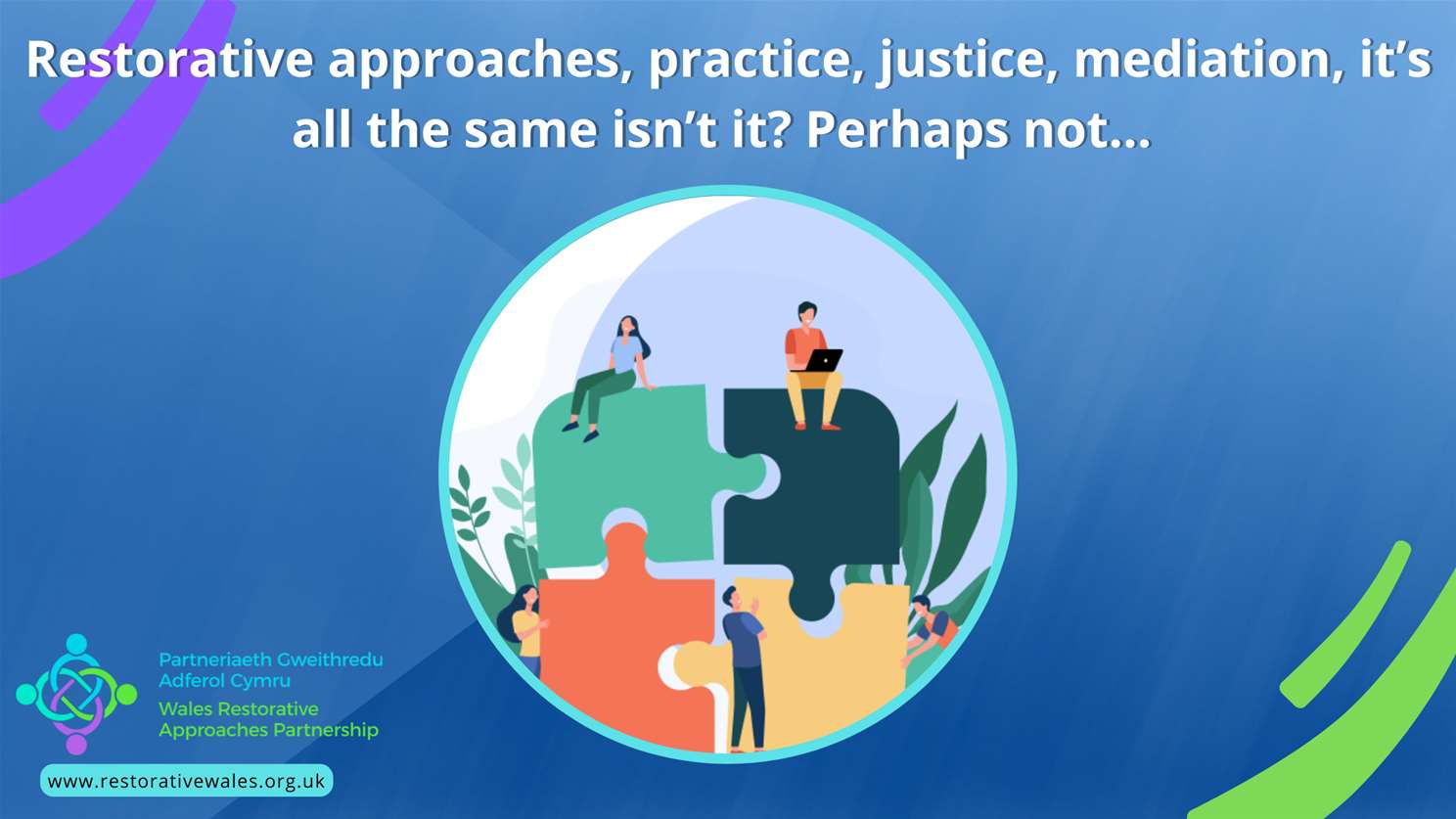Restorative Approaches
Restorative approaches are a growing social science and apply to many contexts including education, criminal justice, business, leadership, communities… anywhere there is people!
Restorative approaches and restorative practice are one and the same. A restorative approach is an ethos, a culture, a way of being that is informed by a range of skills, tools and techniques to prevent conflict and harm from happening. It is our thoughts, feelings and actions that play into our relationships. A restorative approach focuses on developing empathy, understanding, accountability and empowers individuals to provide their own solutions to repair harm in relationships. It works WITH people, not to or for them.
Mediation
Mediation is a process where an impartial third party facilitates a meeting between individuals who are in conflict or have a problem to solve. Mediation is a broad term and can be approached in different ways. Mediation focuses on solving a problem and often supports participants to come to a mutual agreement. It may be that a mediation process naturally comes to a restorative outcome, however, it may not be underpinned by restorative values or principles.
Restorative Justice
Restorative justice was traditionally coined as process whereby a person who has been harmed and a person who has caused harm by crime are brought safely into communication to share individual perspectives and find agreed ways forward. Restorative justice has informed contemporary restorative approaches where this form of communication and process can be applied to various sectors as well as criminal justice. For example, workplace conflict, neighbour disputes or pupil conflict in schools. This may be referred to as a restorative meeting, process or conference in these contexts.
Restorative Meetings and Conferences
A restorative meeting or conference encompasses the process of mediation, however from a restorative approach. It is how we respond to conflict or harm. A restorative meeting seeks to bring those affected by harm or conflict together, to hear individual perspectives, individual needs and find agreed solutions to move forward for all parties. The aim of a restorative meeting or conference is to repair harm. This involves lots of preparation with all parties individually before coming to meet together if appropriate. Other types of process may include letter writing, shuttle mediation or online alternatives. Safety is considered throughout the process.
A restorative process and meeting adheres to the Restorative Justice Council principles:
- Restoration – a focus on repairing harm and relationships
- Voluntarism – everyone must consent and can withdraw at any point
- Neutrality – the Facilitator must remain impartial and non-judgmental
- Safety – the process must not cause any further harm
- Accessibility – everyone has the right to access a restorative process
- Respect/empowerment – participants are treated with respect and accountability and autonomy is encouraged
Benefits of a restorative approach
- Everyone has their voice heard
- It encourages the development of empathy
- There is no power dynamic
- Everyone can contribute to an agreement to move forward
- There is a safe space to explore harm, thoughts, feelings and questions
- Accountability is promoted. There must be a level of accountability for a restorative process to progress
- Participants are empowered
- The process is led by the needs of participants
Summary
- A restorative approach is what we do to prevent harm or conflict through our way of being, thinking and interactions within our relationships
- Restorative justice, restorative meetings and conferences are how we respond and react to harm or conflict with a focus on repairing relationships and is underpinned the restorative values and principles
- Mediation is broad term to resolve conflict through problem solving and may be underpinned by various theories and principles. Mediation aims to find an agreement whereas a restorative approach aims to repair harm
What next?
Hopefully this blog provides you with an overview of the difference between restorative approaches, practice, justice and mediation. Want to find out more or have any questions? Get in touch to hear about our training opportunities! Please email us at contactus@restorativewales.org.uk




